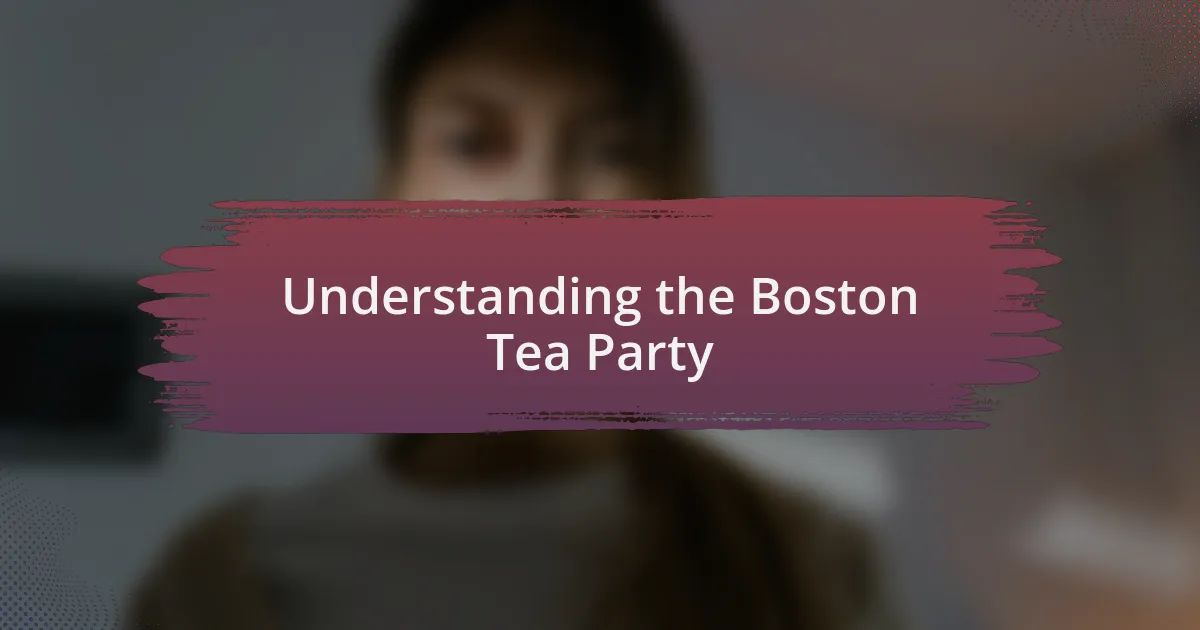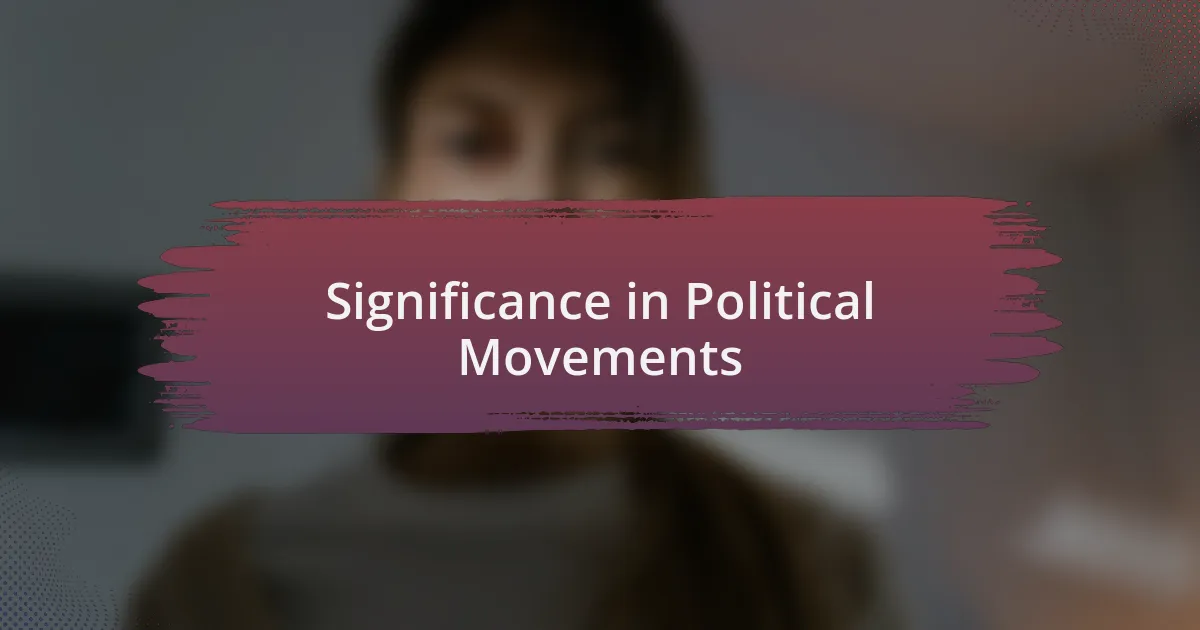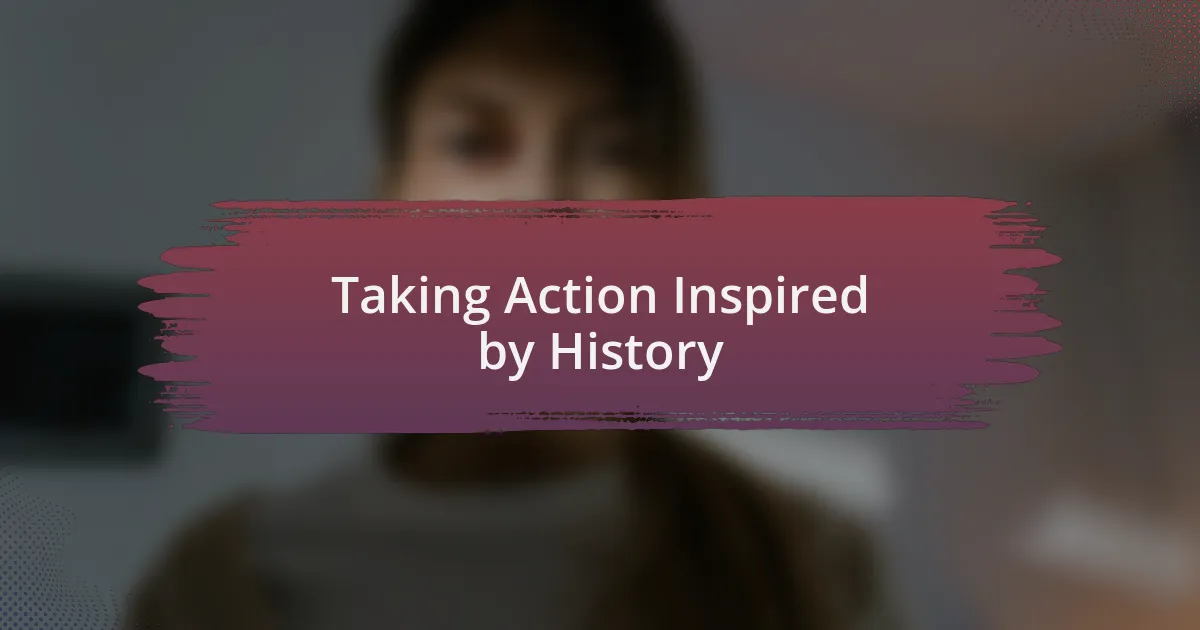Key takeaways:
- The Boston Tea Party on December 16, 1773, was a significant act of rebellion against British taxation, symbolizing the colonists’ fight for self-governance and unity.
- The event highlighted the power of grassroots activism, influencing future generations to challenge authority and inspiring movements for liberty and justice.
- The Boston Tea Party serves as a reminder of the importance of organized resistance and collective action in enacting political change.
- Personal reflections on the event emphasize the ongoing relevance of historical actions, encouraging individuals to take a stand in their own communities.

Understanding the Boston Tea Party
The Boston Tea Party, which occurred on December 16, 1773, was a direct response to the Tea Act, which allowed the British East India Company to sell tea directly to the colonies, undermining local merchants. Imagine the frustration of colonists who felt their economic livelihoods were threatened by a distant government that seemed entirely disconnected from their needs. Can you picture them, boiling with indignation as they watched tea on the ships labeled with a tax they never agreed to?
When I first learned about those daring colonists, I was struck by their boldness. It wasn’t just about tea; it represented a stand against unfair taxation and a fight for self-governance. It’s fascinating to think about the courage it took for them to don disguises and toss over 300 chests of tea into Boston Harbor. What kind of emotions would have surged through those individuals as they engaged in such a massive, symbolic act of rebellion?
Reflecting on the impact of the Boston Tea Party, I realize that this event solidified the idea of “no taxation without representation.” It ignited a spirit of unity among the colonies, paving the way for future protests against British rule. What resonated with me most is how this moment exemplified how communities can come together to challenge injustice. Have you ever felt part of something bigger than yourself in moments of activism or solidarity? That’s the essence of what transpired in those unforgettable hours in Boston.

Historical Context of the Event
The Boston Tea Party emerged from a simmering discontent fueled by a series of unfair taxes imposed by Britain, escalating colonial frustrations. The Tea Act was just one piece of the broader puzzle, coming on the heels of earlier tax measures like the Stamp Act and the Townshend Acts. I often think about how these grievances would have felt overwhelming—imagine living in a place where every small purchase felt like a reminder of an oppressive authority.
As tensions rose, it became clear that ordinary colonists were not just passive recipients of British policy; they were becoming increasingly organized and vocal. Local groups, like the Sons of Liberty, arose to challenge British rule, showing the power of grassroots activism. Reflecting on this, I find it remarkable how people can unite around shared values, leading to significant change. Have you ever noticed how a common goal can turn strangers into allies?
The Boston Tea Party was a culmination of deep-rooted frustrations and an act of defiance that reverberated beyond its immediate outcome. By taking such radical action, the colonists asserted their right to govern themselves and sought to restore a sense of agency. It’s fascinating to consider how a single event can shift the course of history. In those moments, I can almost feel the anticipation and courage of those participants, bound together by their vision for a better future.

Influence on American Politics
The Boston Tea Party set the stage for a new era in American politics by crystallizing the concept of civil disobedience. I often reflect on how powerful it must have felt for the colonists to realize they could stand against injustice, transforming frustration into action. This event encouraged future generations to challenge authority, raising a question: can dissent become a catalyst for progress in any society?
As the news of the Boston Tea Party spread, it became a rallying cry for unity among the colonies. I remember feeling a wave of pride when learning how this singular act ignited a flame that led to the American Revolution. It’s incredible to think about how a diverse group of individuals banded together for a common purpose, inspiring countless movements for liberty and justice throughout history.
The legacy of the Boston Tea Party resonates in modern politics, reminding us that organized resistance can lead to significant change. In my view, it serves as a reminder of the importance of standing up for one’s beliefs, no matter the odds. Have you ever been part of a movement that felt so right, even in the face of opposition? Each time I hear about grassroots campaigns today, I can sense the echo of those early American voices, reminding us that we still have the power to mold our political landscape.

Significance in Political Movements
The Boston Tea Party is a pivotal reference point for political movements, highlighting the direct impact of grassroots activism. I remember attending a local rally once, where the energy in the air reminded me of the solidarity among the colonists. It struck me then that every act of defiance, no matter how small, has the potential to spark larger conversations about rights and governance.
As I delve deeper into various movements inspired by the Boston Tea Party, I see how this event opened doors for dialogue about oppression and freedom. It makes me reflect on my own experiences advocating for social justice. When have we felt that a single moment of collective action could change the course of history? We’ve seen it in civil rights marches and environmental protests, evolving the idea that standing together can challenge the status quo.
The significance of the Boston Tea Party in political movements is not just historical; it’s an invitation for introspection. I often ask myself what it means to resist. If a group of determined individuals could defy an empire, what can we achieve today? The clarity and conviction displayed during that pivotal moment remind me that our voices matter, and when united, they can reverberate through time, inspiring generations to come.

Personal Reflections on the Event
When I think about the Boston Tea Party, I can’t help but remember a time when a group of us stood in protest against a local policy that seemed unjust. Feeling that raw energy, that sense of urgency, was reminiscent of the colonists’ bold choice to challenge authority. In those moments, it’s easy to forget the fear and uncertainty that can grip a person standing against the tide.
Reflecting on this defiance sparks an interesting question for me: how often do we really consider the personal cost of standing up for our beliefs? I recall a heated debate among friends about social issues; the tension echoed the struggles of those early revolutionaries. It reinforced my belief that every discussion, just like every act of rebellion, holds the weight of possible consequences and change.
Sometimes, I wonder if we truly grasp the legacy of the Boston Tea Party. It wasn’t merely a protest; it was a declaration of principles. This evokes a profound sense of responsibility within me. After all, if individuals can ignite a movement with such a simple act, what am I doing in my daily life to speak up or foster change? The personal connection to this moment in history drives me to take action, knowing that even small efforts can ripple outwards.

Taking Action Inspired by History
Taking action inspired by historical events often feels like breathing life into the past. I remember a time I volunteered for a community clean-up after a major storm. Standing among my neighbors, wielding trash bags and tools, I felt an exhilarating connection to the past—the way the colonists banded together, motivated by a strong sense of purpose. It was a reminder that, just like them, we have the power to gather, unite, and create change when circumstances seem overwhelming.
Looking back, I’m struck by the lessons we can draw from those actions. When our local government proposed a new development that threatened our park, we organized a town hall meeting, echoing the town meetings of the 18th century. I recall the nervousness before stepping up to speak, yet the memory of the Boston Tea Party fueled my resolve. As I stood in front of that crowd, I couldn’t help but wonder: What if our voices are the ones that shape the future?
What truly inspires me is the realization that history doesn’t just belong to textbooks; it’s very much alive in our choices today. After that meeting, our community saw real change. I felt a surge of hope and empowerment knowing that, much like the early Americans, we can spark transformation through united action, reminding me that every little ripple counts in the larger tide of society.